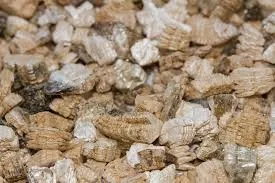Aug . 07, 2024 05:20 Back to list
Exploring Insulation Solutions for Tubing and Pipe Applications in the Chinese Market
China's Insulation Material for Tubing and Pipe A Comprehensive Overview
In the realm of industrial applications, insulation materials play a crucial role in ensuring energy efficiency, safety, and operational effectiveness. Among the various markets for insulation materials, China has emerged as a leading hub for producing high-quality insulation solutions for tubing and piping systems. This article explores the types, benefits, manufacturing processes, and future trends regarding insulation materials in the Chinese market.
Types of Insulation Materials
China manufactures a diverse array of insulation materials tailored for different types of tubing and piping applications. The primary materials include fiberglass, foam, rubber, and calcium silicate.
1. Fiberglass Insulation Widely used due to its excellent thermal resistance and low density, fiberglass is suitable for a variety of applications, including hot water pipes and industrial heating systems. Its ability to withstand high temperatures makes it a preferred choice for many industries.
2. Foam Insulation Polyurethane and polystyrene foams offer exceptional thermal performance and are commonly applied in refrigeration and HVAC systems. These materials reduce energy loss and provide a lightweight solution for manufacturers and builders.
3. Rubber Insulation Known for its flexibility and effective noise reduction properties, rubber insulation is primarily used in piping systems where vibrations and acoustic dampening are essential.
4. Calcium Silicate Boards With high-temperature resilience and fire resistance, calcium silicate is typically utilized in power plants and industrial processes where thermal insulation is crucial for safety and efficiency.
Benefits of Insulation Materials
The use of insulation materials in tubing and piping systems comes with numerous benefits. First and foremost, insulation reduces energy losses. With rising energy costs globally, industries are focusing on minimizing waste through effective insulation solutions.
china insulation material for tubing pipe

Moreover, insulation materials enhance the safety of piping systems. By preventing heat loss or gain, they contribute to temperature control, which is vital in processes where extreme temperatures are involved. Insulated pipes also reduce the risk of condensation, which can lead to corrosion and structural damage over time.
Noise reduction is another significant benefit, especially in urban environments where industrial operations can lead to unwanted noise pollution. Insulation materials help dampen these sounds, creating a more comfortable work environment.
Manufacturing Processes
China’s insulation materials industry has advanced significantly, adopting innovative manufacturing processes. Companies utilize advanced technologies such as automatic production lines and high-efficiency molding techniques. This results in consistent quality and cost-effective production practices.
The emphasis on sustainability has also driven manufacturers to develop environmentally friendly insulation materials. Many companies are investing in the production of bio-based foams and recycled materials, catering to the growing demand for eco-friendly solutions in the industrial sector.
Future Trends
As global trends lean towards sustainability and energy efficiency, the insulation materials market in China is poised for significant growth. Research and development efforts focus on creating higher-performance materials that meet stricter environmental regulations while still being cost-effective.
Moreover, as China continues to expand its infrastructural projects and investments in renewable energy, the demand for advanced insulation solutions for tubing and piping systems is expected to rise. The integration of smart technologies, such as sensors for monitoring thermal performance, will also shape the future of insulation materials in industrial applications.
Conclusion
In conclusion, China stands at the forefront of the insulation materials market for tubing and piping systems, offering a wide range of high-quality products that meet the diverse needs of industries. As energy efficiency becomes increasingly critical, the significance of effective insulation solutions will only grow, driving innovation and transformation within this vital sector. The future of insulation materials in China looks promising, with a strong focus on sustainability, advanced manufacturing technologies, and the development of smart solutions.
-
Eco-Friendly Granule Covering Agent | Dust & Caking Control
NewsAug.06,2025
-
Fe-C Composite Pellets for BOF: High-Efficiency & Cost-Saving
NewsAug.05,2025
-
Premium Tundish Covering Agents Exporters | High Purity
NewsAug.04,2025
-
Fe-C Composite Pellets for BOF | Efficient & Economical
NewsAug.03,2025
-
Top Tundish Covering Agent Exporters | Premium Quality Solutions
NewsAug.02,2025
-
First Bauxite Exporters | AI-Optimized Supply
NewsAug.01,2025
